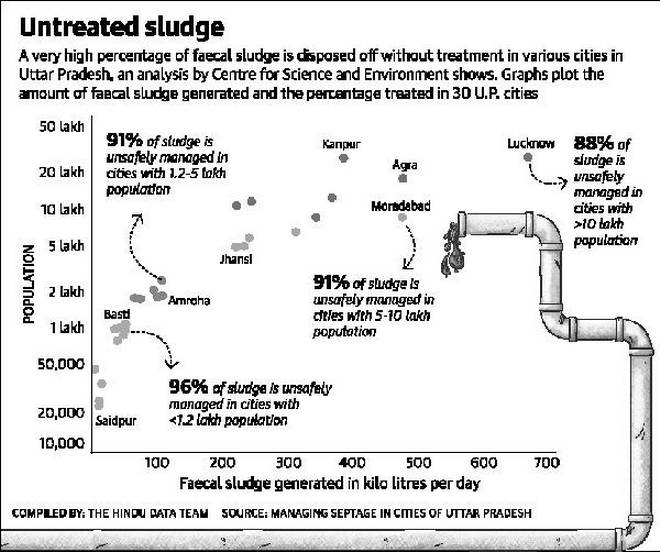7667766266
enquiry@shankarias.in
What is the issue?
The Centre for Science and Environment recently released a report on its analysis of sludge management systems in 30 cities in Uttar Pradesh.
What are the highlights?

What are the other drawbacks?
What lies ahead?
Source: The Hindu